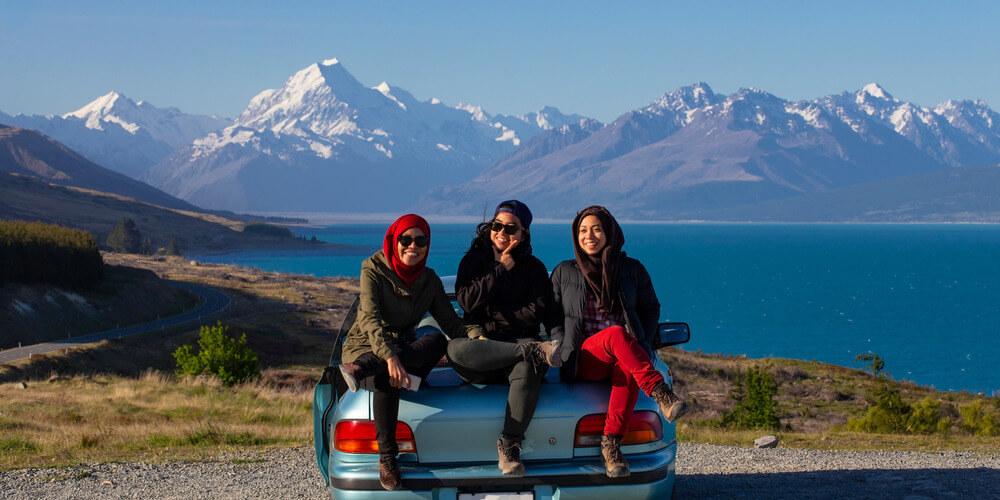National Zakat Foundation of New Zealand launches to serve growing Muslim population
The move comes nearly a decade after the international organisation established a presence in Australia.
The National Zakat Foundation (NZF) has officially launched in New Zealand with the organisation anchored on providing an end-to-end service for the country’s growing Muslim community, specifically in respect of Islamic almsgiving, zakat.
Born out of the UK-based organisation, NZF New Zealand had a soft launch at the end of April and officially rolled out at the end of May. The organisation joins other NZF members in Australia, Canada, Switzerland and the Netherlands.
Ishrar Mohammed, CEO NZF New Zealand said the establishment of an NZF in the country was long overdue given NZF Australia was established almost a decade ago.
“Our mandate is the core mandate of all NZF member countries – to strengthen the third pillar of Islam in the local community,” he said.
This would be achieved through five key activities:
-
Raise awareness of zakat;
-
Provide education services focused on zakat;
-
Provide a comprehensive, localised zakat calculation service;
-
Provide a modern, efficient zakat collection service using the latest fintech solutions and
-
Distribute zakat locally with efficiency, transparency and dignity.
Mohammed said NZF New Zealand was live and accepting zakat payments and adaqah (voluntary act of charity) donations, as well as receiving zakat assistance applications.
“For zakat awareness and education, we are launching a social media campaign targeting both zakat payers and zakat receivers. We will also launch the ‘Are you in need or know someone in need?’ poster campaign; a highly successful campaign during the launches of NZF UK and NZF Australia,” he said.
The organisation is currently recruiting staff, both paid and volunteers, who will be trained in zakat calculation and assessment. In terms of providing a comprehensive localised zakat service, NZF New Zealand will collaborate with other NZF entities.
“We are working with colleagues at NZF Australia and NZF Worldwide to initially implement systems and processes developed over 10 years and tested in Europe, North America and Australia and then localising these to suit the New Zealand context,” said Mohammed, adding that localisation was a key goal for the first year.
Addressing Muslim needs
Muslims account for around 1% of New Zealand’s 5 million-strong population, with that figure expected to reach 3% by 2050, according to Pew Research. The growth will be driven by immigration, a young median age and higher fertility rate.
“Our demographics and community challenges are similar to our bigger neighbour, but on about one-tenth scale. We have an even mix of potential zakat payers and zakat receivers,” he said.
However, with an increase in asylum seeker and refugee intake, as well as a rising number of indigenous Muslims, pressure from zakat receivers will increase. Mohammed said zakat receivers were often overlooked in Organisation for Economic Co-operation and Development (OECD) countries.
As well as a spiritual obligation, it is important for zakat payers to have the right methodology of calculating and paying the correct amount.
“For the modern zakat payer, especially with those in OECD countries with the complex financial instruments and assets they may hold, they are often overlooked or incorrectly accounted for during zakat calculations,” he said.
Equally, it was vital to acknowledge the emerging needs of the zakat receiver.
“(The receiver) is completely overlooked in countries like Australia and New Zealand to the point that many in the community don’t think this person exists here,” he said, indicating the number of people relying on food banks and charity shops was increasing daily.
The Muslim community was not immune with Muslims disproportionately over-represented in those categorised as living in poverty.
In addition to mosques, NZF New Zealand will join local and national organisations like New Zealand Zakat Foundation, Kiwi Muslim Directory, Al-Ameen Islamic Development New Zealand and Al Manar Charitable Trust that collect and distribute zakat within the Muslim community.
Challenges
NZF New Zealand’s biggest challenge will be convincing the country’s Muslim community that a local zakat receiver exists, according to Mohammed.
“We are encouraged by Australia, UK, Canada, Netherlands and Switzerland where they faced (and overcome) similar challenges … There the debate is no longer about local zakat receiver, but rather what percentage of zakat should be spent locally versus abroad,” he said.
NZF New Zealand would work with Muslim and non-Muslim organisations to fulfil its activities.
“Capacity building in our community cannot be achieved by any one single organisation. We absolutely believe in cooperating with both Muslim and non-Muslim organisations across New Zealand,” Mohammed concluded.
© SalaamGateway.com 2022. All Rights Reserved
